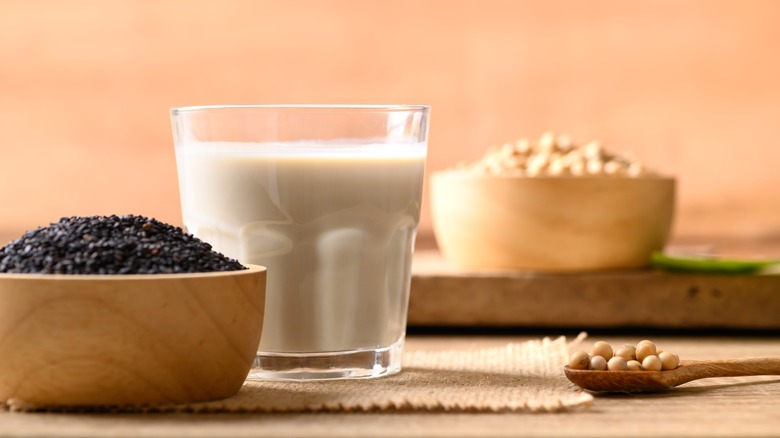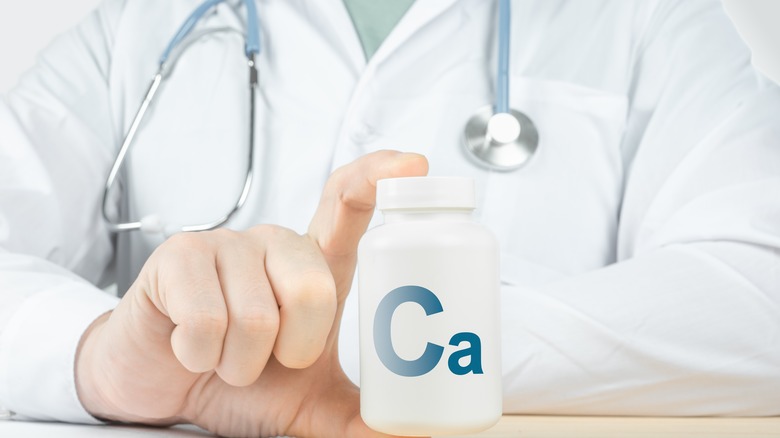What Is Sesame Milk And Is It Good For You?
The plant-based food revolution is red hot and shows no sign of slowing down anytime soon. One of the areas in which the movement is growing the most is in dairy-free alternatives to milk. Almond milk and coconut milk have been around for years now, but there are plenty of other options. Sesame milk is one that is not only dairy-free but nut-free, too. So what's the deal with sesame milk? Does it taste good? Is it nutritious? Let's take a deeper look.
Unlike most nut milks, sesame milk is not made by soaking the nuts, or rather, seeds, in water. Instead, sesame milk is created directly from tahini or sesame butter, which is made by grinding sesame seeds into a thick paste. To make sesame milk, tahini is mixed with water and sometimes a natural sweetener, such as honey or maple syrup, and blended into a rich, creamy milk-like liquid (via Elephantastic Vegan). The result is a milk alternative that you can use in everything including your morning cup of coffee, cereal, or baking dishes that call for milk. It tastes refreshing and filling and may even become your new favorite milk substitute. Apart from taste, is sesame milk good for you?
The nutritional benefits of sesame milk
Besides being slightly sweet and creamy delicious, sesame milk has some pretty incredible nutritional properties that make it an enticing choice for those looking for a non-dairy milk alternative. In fact, sesame seeds are one of the highest non-animal sources of calcium, and 1 tablespoon of the little seeds contains 87.75 mg of this important nutrient (via University of Rochester Medical Center. In comparison, whole milk contains about 270 mg of calcium per cup (via Medical News Today).
But sesame seeds contain more than just calcium. According to Medical News Today, sesame seeds are great sources of protein and fiber, as well as other important nutrients such as potassium and vitamin D. According to The World's Healthiest Foods, sesame seeds are also high sources of essential minerals such as zinc and selenium, providing 25 and 23 percent of the USDA recommended daily allowance for a quarter-cup serving. The highest amount of nutrients found in sesame seeds comes from copper, which provides 163% of its daily recommended intake in a quarter-cup serving. Copper is especially beneficial for people with rheumatoid arthritis, as the mineral is essential to combat inflammation. Because whole sesame seeds, in the form of tahini, are used in the making of sesame milk you are getting all of these nutrients when you consume this tasty beverage.


